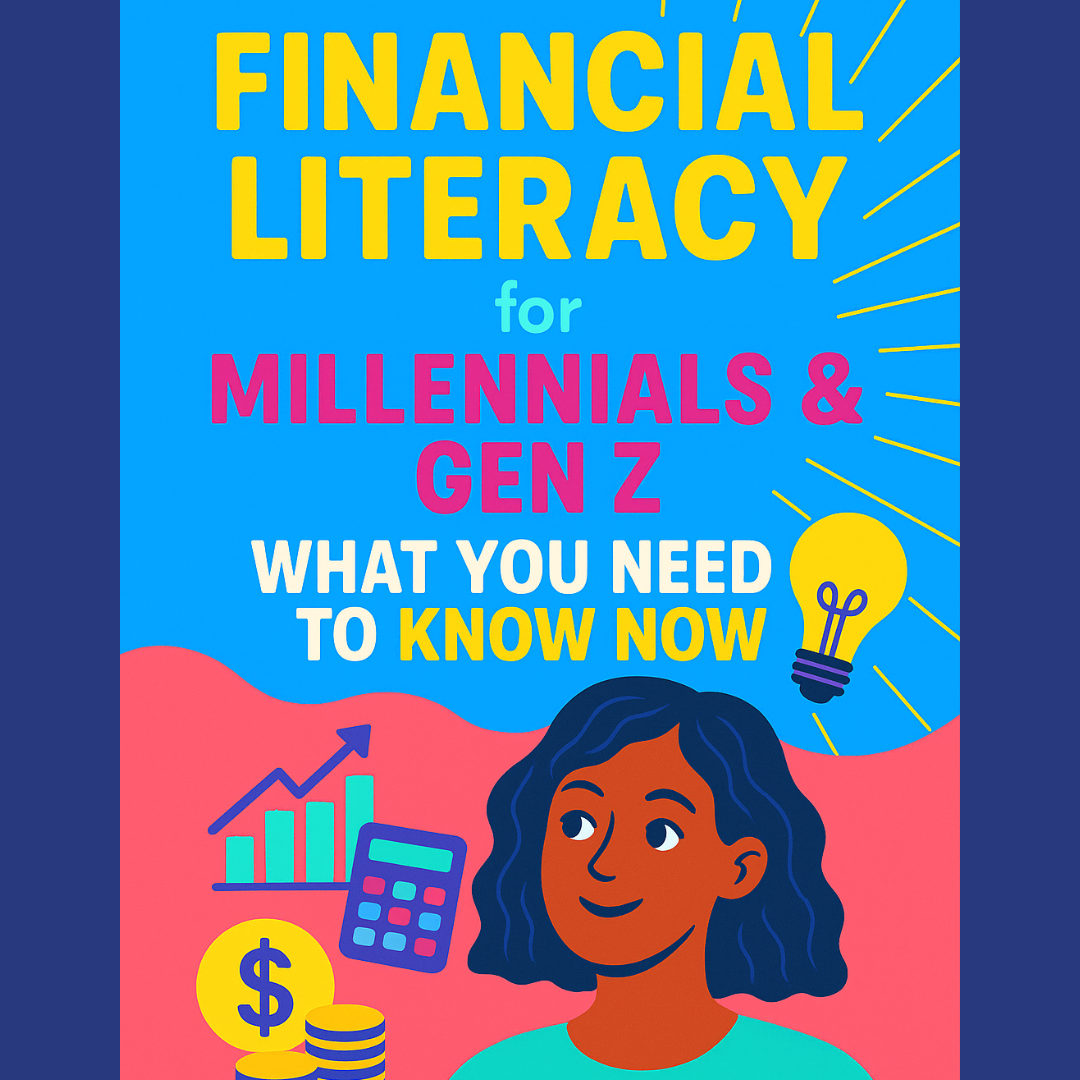Let’s be honest—most of us walked out of school with a diploma in one hand and a massive gap in real-world knowledge in the other. We learned how to solve equations, memorize historical dates, and write essays, but when it came to personal finance, we were left completely unprepared. The result? A generation of adults navigating credit cards, taxes, loans, and budgets with zero guidance. It’s time to talk about what schools didn’t teach you about money—but absolutely should have.
The truth is, financial literacy is one of the most powerful forms of self-empowerment. It impacts your freedom, your choices, your peace of mind, and your legacy. Yet traditional education often skips over the basics of how money works, how to grow it, and how to use it to build the life you want. If you’ve ever felt overwhelmed by money or frustrated that you weren’t taught this sooner—you’re not alone. But the good news is, it’s never too late to learn what really matters.
Why Financial Education Matters More Than Ever in 2025
We’re living in a time where money flows faster and technology evolves daily. From online banking and cryptocurrency to side hustles and passive income, the financial landscape is shifting. Yet millions of people are still stuck in outdated thinking, buried in debt, and struggling to understand even the basics of credit, taxes, or budgeting.
That’s not because people are lazy—it’s because they were never taught. Most schools still don’t cover essential financial skills, leaving students to “figure it out” as adults. But in 2025, ignorance is expensive. Financial literacy is no longer optional—it’s the key to survival and success.
The Basics That Should Have Been Taught in School
Let’s break down the core money lessons that should’ve been on every curriculum—from middle school to college. These are the building blocks of financial success, and if you master them now, you can rewrite your entire future.
1. How to Budget Like a Pro
Budgeting is the foundation of every financial plan. Yet many people don’t learn how to track income, manage expenses, or prioritize financial goals. Schools should’ve taught us how to create a monthly budget, distinguish between needs and wants, and use tools like budgeting apps or spreadsheets. A well-planned budget gives you clarity and control—without it, you’re just guessing.
2. The Truth About Credit and Credit Scores
Your credit score affects your ability to buy a home, get a car loan, rent an apartment, and even land certain jobs. But how many of us were taught how credit scores work, how to build them, or how to avoid credit traps? We should’ve learned about credit utilization, payment history, inquiries, and how to responsibly use credit cards without falling into debt.
3. The Power of Compound Interest
Albert Einstein once called compound interest the “eighth wonder of the world”—and for good reason. If we had learned how compound interest works (and how to make it work for us), many of us would’ve started investing at 18. Schools should’ve taught students that investing early—even small amounts—can lead to massive wealth over time.
4. How to Manage Debt Strategically
Most people graduate with student loans but no understanding of how interest accrues or how repayment options work. On top of that, they get flooded with credit card offers without being taught how to use them wisely. Schools should have taught the difference between good debt (like student loans or mortgages) and bad debt (high-interest credit cards), and how to manage or eliminate debt efficiently.
5. How Taxes Actually Work
Let’s face it—taxes are confusing. But they’re a huge part of adult life. Schools should’ve taught us about tax brackets, how to read a paycheck stub, what deductions and credits are, and how to file a basic tax return. Understanding taxes helps you maximize your take-home pay and avoid costly mistakes.
6. The Basics of Saving and Emergency Funds
We should’ve learned the importance of saving money early—especially for emergencies. Life is unpredictable, and an emergency fund can protect you from going into debt when unexpected expenses arise. Schools should have emphasized saving at least 3–6 months of living expenses and building consistent saving habits.
7. How to Invest with Confidence
Most people think investing is only for the wealthy. But the truth is, everyday people are building portfolios through index funds, retirement accounts, and fractional shares. Schools should have introduced us to the stock market, explained risk vs. reward, and shown how to start with tools like IRAs, 401(k)s, or apps like Robinhood and Fidelity.
8. How to Build Wealth, Not Just Make Money
One of the most powerful shifts in financial thinking is learning the difference between making money and building wealth. Schools should’ve taught us how to generate income through side hustles, how to create multiple streams of income, and how to use assets (not just wages) to grow long-term wealth.
The Cost of Not Learning These Lessons
When financial education is missing, the cost is high. People graduate into adulthood and fall into traps—living paycheck to paycheck, buried in debt, afraid to check their bank balance, or postponing dreams due to financial insecurity. Worse, many feel shame and guilt about their situation, not realizing the system simply didn’t prepare them.
But here’s the exciting truth: once you start learning about money, everything changes. You feel empowered. You make better decisions. You stop reacting and start planning. You stop surviving and start thriving.
What You Can Do Now to Catch Up
If you weren’t taught these money lessons in school, don’t beat yourself up. You’re not behind—you’re right on time. Here’s how you can start taking control today:
- Read personal finance books like The Psychology of Money, Rich Dad Poor Dad, or I Will Teach You To Be Rich.
- Follow credible money experts on YouTube, Instagram, and podcasts.
- Start budgeting today, even if it’s just tracking your spending for a week.
- Check your credit score and understand what’s affecting it.
- Open a savings or investment account, even if you start with $10.
- Ask questions—to mentors, coaches, or online communities.
The more you learn, the more confident and capable you become.
Final Thoughts: It’s Time to Rewrite the Financial Narrative
The system may have failed to teach you about money, but that doesn’t mean you’re stuck. In fact, now is the perfect time to become your own financial educator and advocate. You have the power to build wealth, make smarter decisions, and change the trajectory of your life and future generations.
Financial literacy is more than just numbers—it’s freedom, security, and possibility. And the sooner you master what school never taught you, the sooner you’ll unlock a life on your terms.





